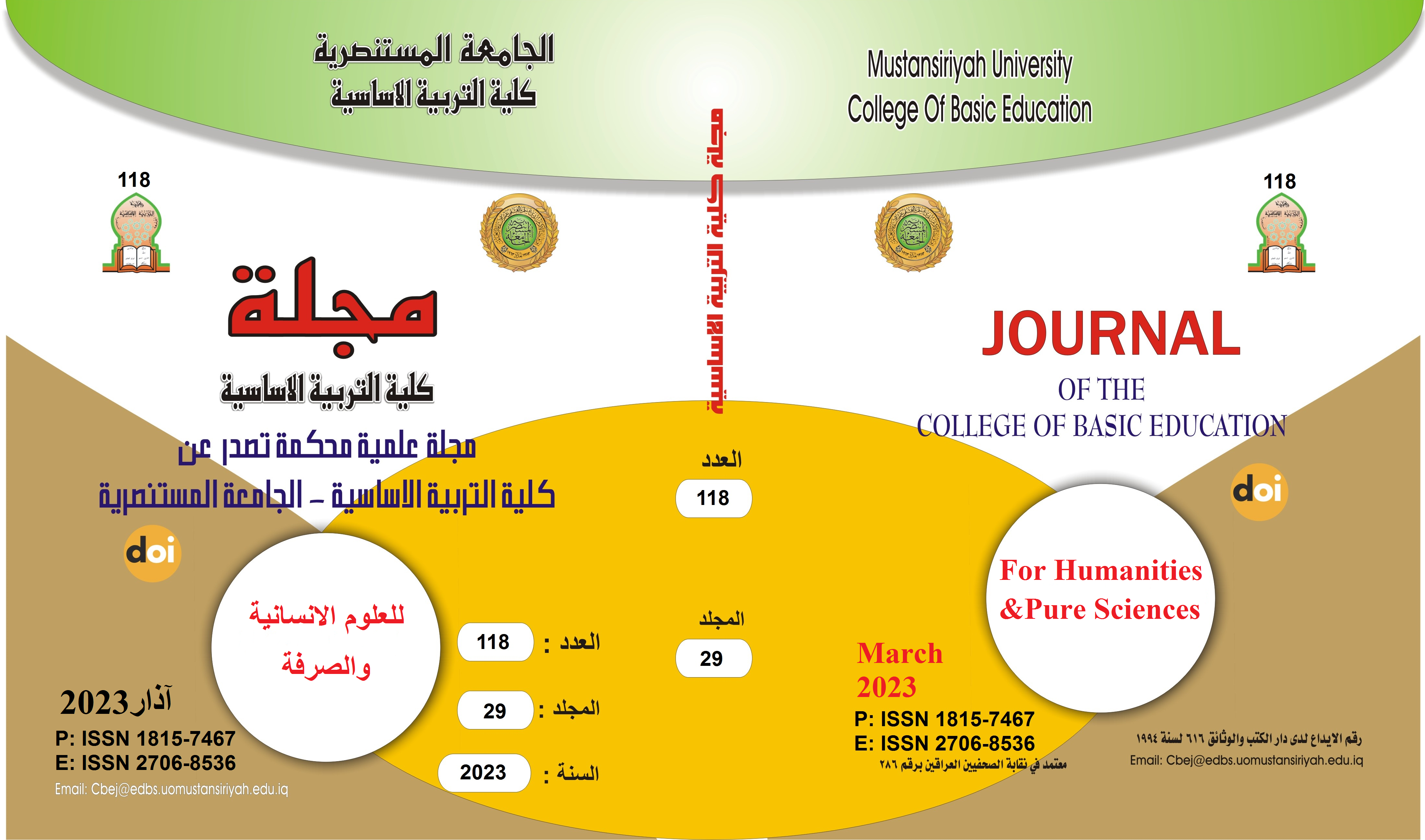Analysis of the third intermediate grade mathematics book according to productive thinking skills
Main Article Content
Abstract
Summary of the research
The aim of the current research is to analyze the mathematics book of the third grade / intermediate according to the skills of thinking / product, where the descriptive approach was used / using the method of content analysis /, the sample / research consisted of the mathematics book / for the third grade average and decided / by the Iraqi Ministry of Education / Directorate General For the curricula for the academic year / (2021-2022 AD) / in its first and second parts, where an analysis tool was prepared for this purpose, which is a list of skills / productive thinking, whose validity was verified by presenting it to a group of arbitrators in curricula and teaching methods /, and the / researcher / unit was approved for that The idea (the implicit idea/and the idea/explicit) as a recording unit, and the repetition/as a unit of enumeration. The validity of the analysis was verified by presenting the sample/to the arbitrators, (in order to calculate the stability of the holist analysis) and the percentages/repetitions were used in addition to the Holsty equation between the researcher and herself over time/between her. and among other analysts. The results of the research showed that the skills were distributed in an unbalanced manner and in varying proportions clearly, where critical thinking skills ranked first and then creative thinking skills as two main skills of productive thinking skills, where the distribution was gradual (the skill of predicting assumptions with a frequency rate of (181) with a rate of (21.5%) Skill / reasoning ranked second with a frequency of (152) with a rate of (18.3%), skill / fluency ranked third with a frequency of (16.5%), while the evaluation and interpretation skills occupied the fourth and fifth ranks with a frequency of (122) for the skill of evaluating discussions with a rate of 14.7% and 100 for the skill of interpretation with a rate of 12.7%. As for the sixth place, it was obtained by the flexibility skill with a frequency of 93 and with a rate of (11.2%). The product, especially the skills less included in the book, may also benefit the planners and developers of mathematics curricula in terms of reviewing the list of productive thinking skills, developing mathematics books, identifying its deficiencies, working on remediation, strengthening its strengths, and treating its weaknesses. A number of proposals were also presented, such as conducting more studies to identify the availability of the rest of the textbooks for productive thinking skills that are not specific to a specific subject, but must be developed in all curricula, and to conduct an analytical comparative study between middle school mathematics books in Iraq and one of the Arab countries in the light of productive thinking skills.
Keywords: content analysis, mathematics book, productive thinking skills.
Article Details

This work is licensed under a Creative Commons Attribution-ShareAlike 4.0 International License.
